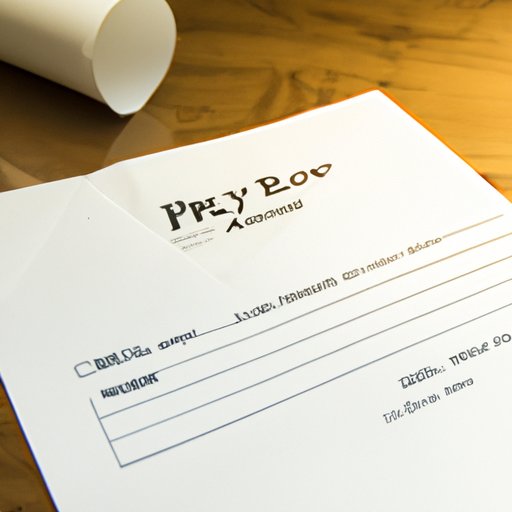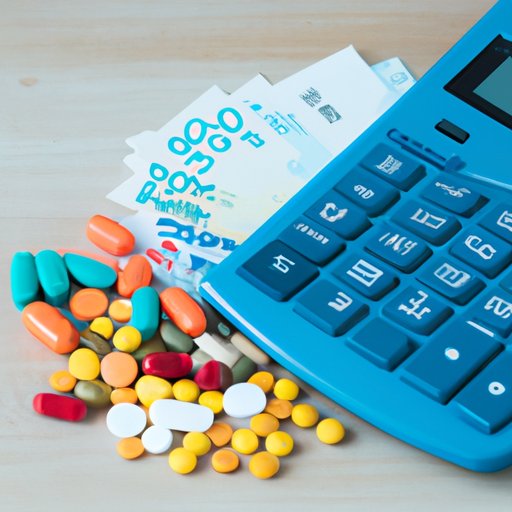Introduction
If you’re planning a trip abroad, it’s important to consider what you need to do if you take regular medication. In order to make sure your trip goes smoothly, you should research pharmacies at your destination in advance, bring a copy of your prescription and a letter from your doctor, calculate the cost of medication in different countries, check if your health insurance covers overseas prescriptions, understand the laws and regulations about bringing medications into foreign countries, ask for advice from a travel clinic, and consider carrying generic drugs instead of brand-name medications.
Research Pharmacies at Your Destination in Advance
Researching pharmacies at your destination before you go is one of the best ways to ensure that you can get your prescriptions filled while traveling. It’s important to know where you can find a pharmacy, what medications they carry, and whether they accept your insurance. Here are some tips for finding pharmacies at your destination:
- Search online: Use search engines such as Google or Bing to search for “pharmacy near [destination]” or “[destination] pharmacy.” You can also use online directories such as Yelp or Yellow Pages to search for pharmacies in the area.
- Ask your hotel: Most hotels have a list of nearby pharmacies and may even be able to provide transportation to them.
- Check with your doctor: If you have a regular doctor, they may be able to recommend a pharmacy at your destination.
The benefits of researching before you go are numerous. You can contact the pharmacy ahead of time to make sure they carry the medications you need, find out if they accept your insurance, and ask any other questions you may have. This can save you time and money once you arrive at your destination.

Bring a Copy of Your Prescription and a Letter from Your Doctor
It’s important to have a copy of your prescription and a letter from your doctor when traveling with medication. The letter should include information about the medication, why it’s being prescribed, and the dosage. This will help the pharmacy verify that you are taking the medication as prescribed by your doctor.
You can obtain a letter from your doctor by making an appointment before you leave on your trip. During the appointment, explain why you need the letter and provide your doctor with a copy of your prescription. Your doctor should be able to provide you with a letter within a few days.

Calculate the Cost of Medication in Different Countries
The cost of medication can vary greatly between countries. Factors such as the cost of living, currency exchange rates, and taxes can all affect the price of medication. It’s important to research the cost of medication in the country you’ll be visiting before you go. This will help you budget for your trip and avoid any unexpected costs.
There are several ways to compare prices. You can look up the prices of medications online, ask your doctor for advice, or contact a pharmacy in the country you’re visiting. Additionally, you may be able to purchase medications over the counter without a prescription in some countries, which could save you money.
Check If Your Health Insurance Covers Overseas Prescriptions
It’s important to understand how your health insurance works when you’re traveling. Some insurance plans may cover prescriptions filled overseas, while others may not. Before you leave, contact your insurance company to find out if they offer coverage for prescriptions filled in other countries. Additionally, ask if there are any restrictions or requirements you must meet in order to be eligible for coverage.
If you don’t have health insurance, you may be able to purchase travel insurance that covers prescriptions. You can also look into purchasing a short-term health insurance plan that covers overseas prescriptions. These plans may be more affordable than traditional health insurance plans and can provide peace of mind while you’re away.
Understand the Laws and Regulations About Bringing Medications into Foreign Countries
Each country has its own laws and regulations regarding the importation of medications. It’s important to research these laws and regulations before you travel. Common restrictions include limits on the amount of medication you can bring in, types of medications allowed, and documentation required. For example, some countries may require you to have a doctor’s note or prescription to bring certain medications into the country.
There are several resources available to help you learn about specific laws and regulations. The U.S. Department of State website has a section dedicated to travel health information, and various embassies and consulates offer information about their country’s laws and regulations. Additionally, most airlines provide information about the rules and regulations for bringing medication onboard.

Ask for Advice from a Travel Clinic
If you’re still unsure about how to get your prescriptions filled while traveling, you may want to consider visiting a travel clinic. A travel clinic can provide advice on medications, immunizations, and other health-related issues. They can also help you obtain the necessary documents for bringing medications into a foreign country and provide information about pharmacies at your destination.
Most major cities have travel clinics, and many universities offer travel medicine services. Additionally, you can find a travel clinic near you by using the CDC’s Traveler’s Health Search tool. Be sure to make an appointment well in advance of your trip in order to give yourself enough time to obtain the necessary documents and research pharmacies at your destination.
Consider Carrying Generic Drugs Instead of Brand-Name Medications
Generic drugs are typically less expensive than their brand-name counterparts. They are also usually just as effective, so they can be a good option if you’re looking to save money while traveling. However, it’s important to talk to your doctor before switching to a generic drug, as there may be potential side effects or risks associated with the switch.
Additionally, it’s important to keep in mind that some countries may not allow the importation of generic drugs. Before you travel, research the laws and regulations regarding generic drugs in the country you’re visiting. This will help you determine if it’s safe and legal to carry generic drugs with you.
Conclusion
Traveling with prescription medications can be complicated, but with the right preparation, it’s possible to get your prescriptions filled while traveling. Be sure to research pharmacies at your destination, bring a copy of your prescription and a letter from your doctor, calculate the cost of medication in different countries, check if your health insurance covers overseas prescriptions, understand the laws and regulations about bringing medications into foreign countries, ask for advice from a travel clinic, and consider carrying generic drugs instead of brand-name medications. With a little bit of research and planning, you can make sure your trip goes smoothly and that you have access to the medications you need.
(Note: Is this article not meeting your expectations? Do you have knowledge or insights to share? Unlock new opportunities and expand your reach by joining our authors team. Click Registration to join us and share your expertise with our readers.)
